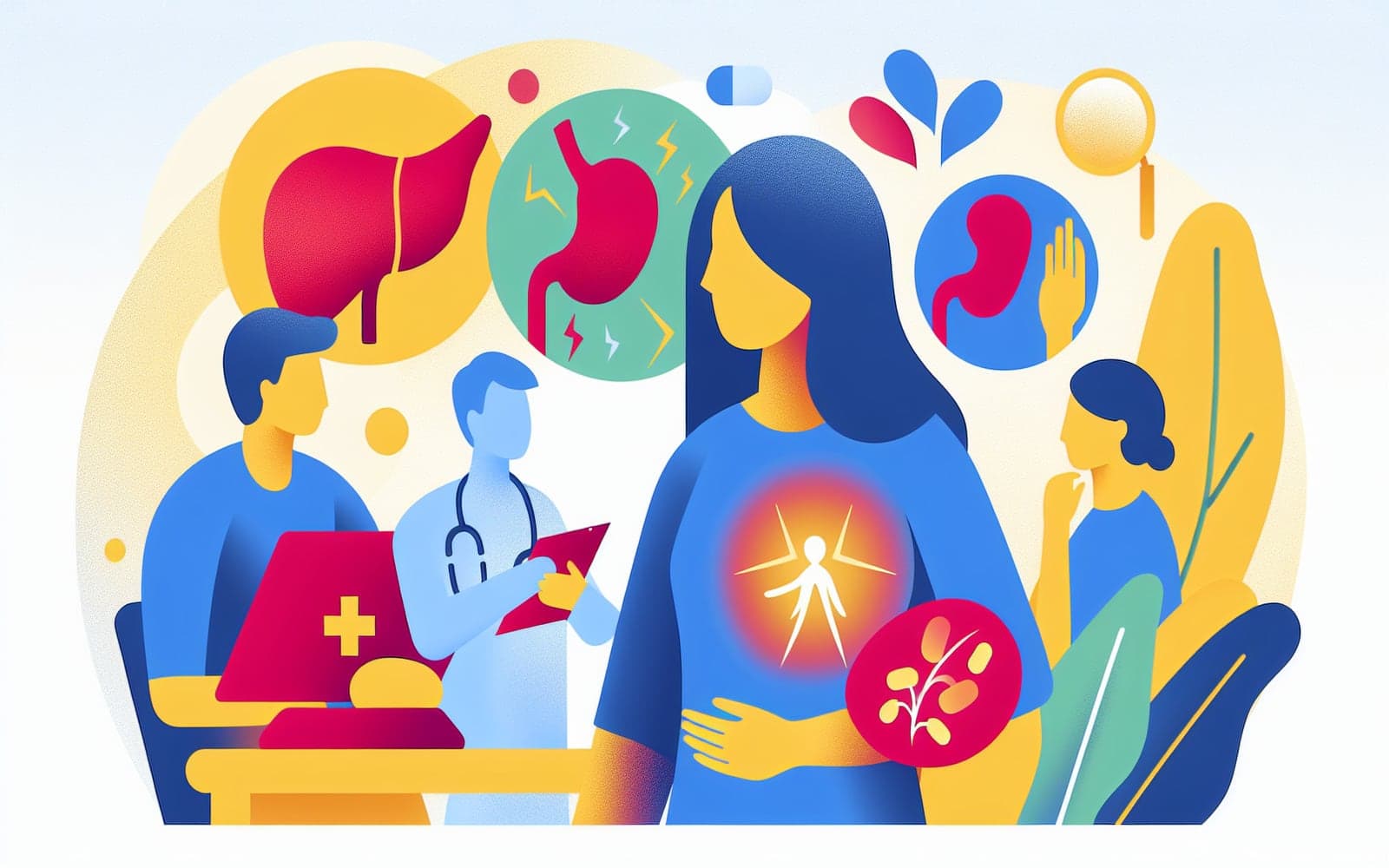Is It Gallstones? 7 Warning Signs You Shouldn't Ignore
Published: Jun 21, 2024
Gallstones can be silent troublemakers, but sometimes they make their presence known. Recognizing the symptoms early can save you from a world of discomfort.
Contents
The Classic Culprit: Pain
The most common symptom of gallstones is pain, often called a gallbladder attack. This pain typically occurs in the upper right part of your abdomen and can last from a few minutes to several hours. It's often described as intense and may radiate to your back or right shoulder. Think of it as your gallbladder's way of sending an SOS signal.
Digestive Distress
Gallstones can also cause digestive symptoms. You might experience nausea, vomiting, or indigestion, especially after eating fatty foods. It's like your digestive system is staging a protest against certain meals. Some people also report bloating or excessive gas.

The Color Connection
In some cases, gallstones can cause changes in your body's color palette. If a stone blocks your bile duct, it can lead to jaundice, causing yellowing of your skin and the whites of your eyes. Your urine might become darker, while your stools could turn pale or clay-colored. It's as if your body is using colors to signal that something's not right.
Frequently Asked Questions
Yes, it can mimic a heart attack.
Yes, they can be intermittent.
Yes, pain can radiate to the back.
Often yes, especially after fatty meals.
Key Takeaways
If you experience severe abdominal pain, fever, or jaundice, it's crucial to seek medical attention promptly.
Concerned about possible gallstone symptoms? Don't wait - consult with Doctronic to evaluate your symptoms and get personalized advice.Related Articles
References
Portincasa P, Moschetta A, Petruzzelli M, et al. Symptoms and diagnosis of gallbladder stones. Best Pract Res Clin Gastroenterol 2006; 20:1017-1029.
Gurusamy KS, Davidson BR. Gallstones. BMJ 2014; 348:g2669.
Always discuss health information with your healthcare provider.